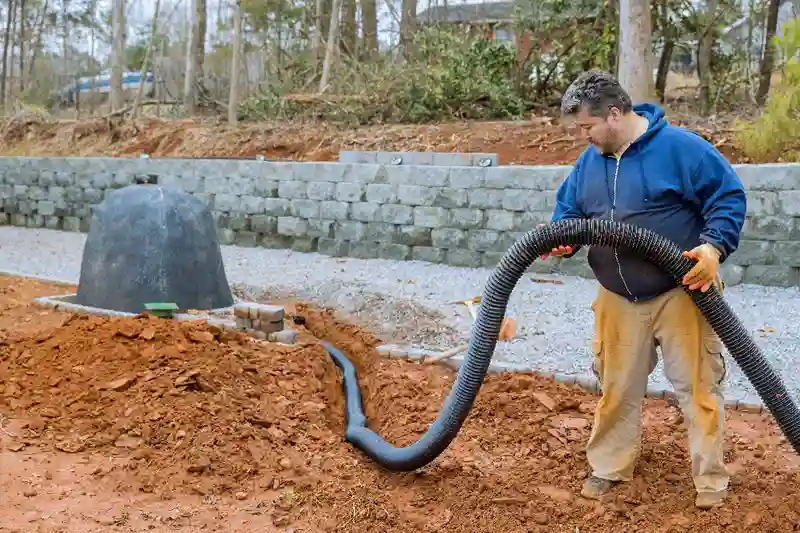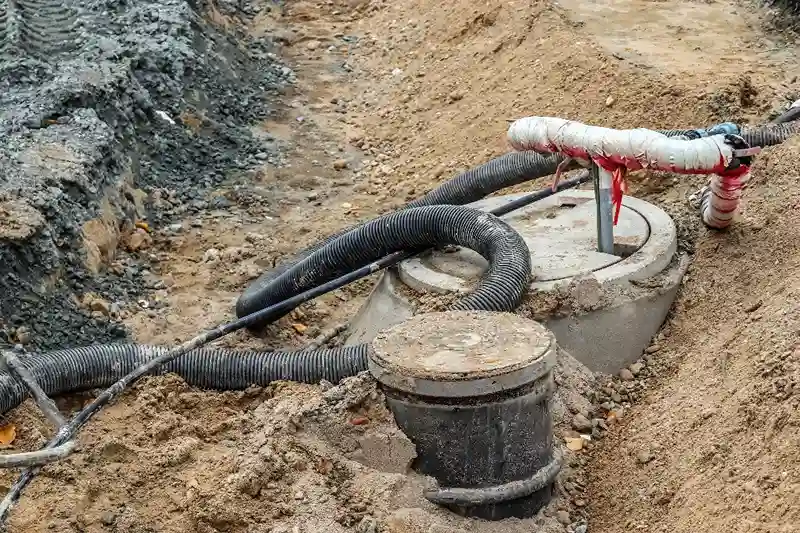A leaking septic pipe is more than a simple nuisance; it can quickly escalate into a dirty, stinky, and costly nightmare. Many homeowners ignore early warning indicators, believing it is simply a sluggish drain or an unpleasant stench. However, if a septic leak is overlooked, it may cause damage to your yard, contaminate groundwater, and even harm your health. Knowing what causes leaks, how to detect them, and how to repair the problem is critical for any homeowner with a septic system. Let’s break it all down.
Why a Leaking Septic Pipe Is a Serious Problem
When a septic system leaking continues unreported or ignored, the results may be more than simply a bad odor. You are concerned about potential property damage, contamination of local water supplies, and health hazards from hazardous microorganisms. Not to mention that house repairs due to sewage difficulties can cost thousands of dollars. It’s more than simply a pipe issue; it’s a system problem.
Warning Signs of a Septic Leak
Wet or Soggy Spots in the Yard
Even if there hasn’t been any rain, damp or mushy spots in your yard may indicate that your septic tank is leaking beneath. These patches typically form near the drain field or tank.
Strong Sewage Odors Around the Tank or Drain Field
Follow your nose. A bad, persistent odor near your septic system is a typical warning sign. The stink indicates that the garbage is not staying where it should.
Backed-Up Toilets or Slow Drains
Listen up: your toilets and sinks are communicating. If they are draining slowly or backing up, this might indicate a leaky sewage pipe or, worse, a blockage putting strain on the system.
Lush Green Grass Over the Septic Area
Your lawn may appear to be prospering, but if the grass above the sewage zone is greener and growing quicker than the rest, it is feeding on something other than sunlight—hello, septic leak.
Pooling Wastewater Above the Ground
Seeing wastewater above ground? That is a smoking gun. It signifies your system is overcrowded or faulty, and you’re dealing with a leaking septic pipe.

What Causes a Septic Pipe to Leak?
Pipe Corrosion or Cracks Over Time
Moisture, pressure, and age all contribute to pipe corrosion or cracking over time. When there is a gap, wastewater flows out.
Shifting Soil or Tree Root Infiltration
Mother Nature has a devious side. Shifting soil caused by rain or drought, as well as roots from neighboring trees, can damage or strain septic lines, resulting in leaks.
Blockages and Pressure Buildup
When waste cannot flow freely, pressure increases. What was the result? Broken pipes or backed-up systems. This is frequently produced by flushing non-septic-safe items like oil into the drain.
Poor Installation or Aging Infrastructure
Some systems are ticking time bombs. If your septic was poorly installed or is decades old, the risk of a septic system leaking increases significantly.
How to Diagnose a Leaking Septic Pipe
Visual Clues and Surface Symptoms
Look for unexpected moist spots, brilliant green grass, or standing water. These indicators frequently point directly to a leaking septic pipe.
Septic System Dye Testing
Dye tests are a rapid technique to detect leaks. A particular dye is flushed down the toilet; if it appears in your yard, you have a leak.
Camera Inspection and Professional Assessment
Sometimes, you have to view the chaos from the inside. Professionals may put a camera into your pipes to locate the leak without tearing up your yard.
How to Fix a Leaking Septic Pipe
Temporary DIY Measures (If Safe to Attempt)
For minor leaks, sealing gaps with plumber’s epoxy or using pipe clamps may save you time, but only if you know what you’re doing.
Professional Repairs: Pipe Replacement or Sealing
Serious challenges require serious tools. Professionals can replace broken pipes, reseal joints, and verify that the system flows properly.
Addressing Surrounding Contamination
Fixing the pipe is one thing, but don’t overlook the mess it leaves behind. Contaminated soil may need to be removed and treated to prevent health risks.
When Septic Tank Repair or Replacement Is Needed
Sometimes, it’s more than just the pipe. If the tank is broken or compromised, repairs will be insufficient; a complete replacement is required. A qualified specialist will assist you in making a decision.
Preventing Future Septic Leaks
Regular Septic Pumping and Maintenance
Routine pumping (every 3-5 years) prevents solids from accumulating and producing pressure. Don’t wait for indications; remain ahead of the game.
Avoiding Harsh Chemicals and Clogs
Flushing bleach, drain cleaners, or hygiene products? That is a big error. These things eliminate beneficial microorganisms and clog the system.
Landscaping Considerations (Keep Trees and Roots Away)
Plant trees distant from your septic tank. Their roots look for moisture and may puncture even the most durable pipes.
How Can I Tell If It's the Pipe, Tank, or Drain Field Leaking?
It’s tough. Surface indicators frequently appear the same. Professional examinations, such as dye tests, cameras, and pressure checks, will reveal if the problem is with the pipe, tank, or drain field.
Is It Safe to Stay in My Home While My Septic System Is Leaking?
It depends on the size of the leak. If garbage is backing up into your home or pooling near your foundation, it is preferable to remain elsewhere until the problem is resolved. Leaking sewage pipes pose serious health dangers.
Call a Professional Plumber for Septic Tank Services in Chattanooga, TN
Dealing with a leaking septic pipe? Don’t wait until it gets worse. If you notice a septic leak in your yard, unusual odors, or slow drains—call in the pros.
A septic tank leaking is not to be ignored. From warning signals to reasons and solutions, you now understand what to look for and how to proceed. But what’s the best fix? Allowing specialists to handle it.
At Rooter-Man, we’ve seen and fixed it all. Whether it’s a subtle septic leak or a complete system failure, we have the knowledge and tools to fix it. Do not wait for the odor to spread. Call us immediately to get your septic system back in shape.


